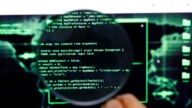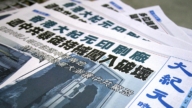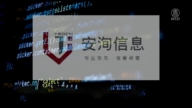【新唐人2013年03月30日讯】中共当局对网络的箝制与封锁,再推新招。中共国务院日前发布了《国务院机构改革和职能转变方案》任务分工通知,其中,要求明年(2014年)6月底前“出台并实施信息网络实名登记制度”,尤为引人注目。不过,有评论指出,中共这一举措,虽然凸显了自身极度的恐惧,想利用网络实名登记,再次胁迫网友的言论自由,不过,这恐怕会变成一把双刃剑,反过来刺伤自己。
这一文件是28号由国务院办公厅向国务院各部委、和各直属机构下发,具体部署实施今年人大会议期间通过的所谓《机构改革方案》。
其中,要求6月底前,完成信息网络实名登记制度,由“工业和信息化部、国家互联网信息办公室会同公安部负责”。国务院发布的这一具体指令,给实施网络实名制设置了时间表。
从2003年开始,中国各地的网吧管理部门,要求在网吧上网的客户必须提供身份证,实名登记。
2006年信息产业部提出对博客实行实名制,引发网民强烈反响。
2012年,也就是去年3月,中国四大微博分别正式实行微博实名制。
同年12月28号,中共全国人大常委会,审议通过关于加强网络信息保护的决定草案,其中规定用户办理网站接入服务,必须提供真实身份信息。
原《河北人民广播电台》编辑朱欣欣指出,中共对网络新媒体的控制越来越紧,如今再搞实名制,就是为了进一步控制人们的言论,但是可能正反效果同出。
原《河北人民广播电台》编辑朱欣欣:“真正敢于发言、讲话表达的这些人,他也不怕这个实名的,其实反而能够更鼓励严肃、认真的这些人,去发出自己的声音。 我认为它是一种双刃剑,可能一时会吓倒害怕被报复的一些人,但是对于真正的负责任的、要讲话的这些人,这种措施不会对他们构成什么危险。”
朱欣欣表示,网络上很多意见领袖的博客早就实施了实名制,但他们仍然能勇敢的发出自己的声音。而且人们对于外界的压力都有一个适应过程,中共的打压和箝制,反而促使他们一步步增强自己的抗压力。
上海民运人士汪建华:“我们都很久就实名制了,他们都查得到我们。我感觉像我们这种人实名制比较好,朋友都知道我是谁。他们要查很简单的,每个人都有IP地址。像我们这种人是有利的,但对于老百姓的隐私是无利的。如果做生意的、商业有什么秘密都透明的了。”
上海民运人士汪建华表示,由于长期受到当局监控,他的一举一动、一言一行当局都很清楚,所以他并不在意实名制。
汪建华:“随便它去了,(现在)门口也站着两个人,无所谓的,让他们站吧!我们发任何消息他们都收得到,包括我现在跟你说话,他们也知道!”
这一消息在网络上也引发广泛讨论。很多大陆网民认为,这是中共企图防止近期不断出现的网络反腐。名为“闫振丰”的网友在微博上留言道:网络实名制将是言论自由的倒退。
广西网络作家荆楚:“互联网最大的特点就是自由,就是让公民无所恐惧的在上面说话,说出他的心声。这样做凸显出了互联网让中共非常恐惧,他们要想尽办法,通过立法来约束互联网,让网民处于恐惧之中,是这么一个目地。”
广西网络作家荆楚还表示,从这个事件可以看出,中国的政权不是由人民作主掌握。他说,在中国,那些祸国殃民的决策出台,一夜之间就可以通过,可以说“雷厉风行”。
采访/陈汉 编辑/王子琦 后制/李智远
China’s Online Real Name Registration System: A Double-Edged Sword?
The Chinese Communist Party (CCP) has a new tactic to block and control the internet. Recently, notification of “division of tasks” requires that an internet real name registration system (NRS) be implemented before the end of 2014. This news has caught many people’s attention.
However, some critics said that the CCP is displaying extreme fear. It wants to use the NRS to threaten netizens’ freedom of speech. This tactic may turn into a double-edge sword, and the CCP may cut itself as well.
On March 28, the State Council General Office sent an “institutional reform program” file to all the State Council ministries, commissions, and subordinate departments.
In that file, it is stated that the implementation of NRS will be carried out by the State Internet Information Office and the Ministry of Public Security before the end of June.
The notice issued by the State Council also set a timetable for the implementation of the NRS.
Since 2003, administrative departments of internet cafes all over China have required customers to provide an ID, and a real-name registration.
In 2006, the Ministry of Information Industry tried to apply NRS to bloggers, causing a strong reaction from netizens. In March 2012, the four major Chinese microblogging companies formally introduced NRS with bloggers.
On December 28 2012, the Standing Committee of the National People’s Congress examined and adopted a draft decision for strengthening the protection of online information. In this, consumers are required to provide real ID’s, in order to gain access to websites.
Zhu Xinxin, former editor of Hebei People’s Radio Station, pointed out that the CCP is tightening up its control of internet media to further control people’s speech. However, the resulting outcome may be the opposite to that which was intended.
Zhu Xinxin: “Real outspoken people are not afraid of NRS. In fact, they will be more encouraged to speak up, and to express themselves, so it is a double-edged sword. It may intimidate some people, who are afraid of retaliation, but for really responsible people, NRS will not harm them.”
Zhu Xinxin comments that the NRS has long been applied to many opinion leaders on the internet. But, they are still brave enough to make their voices heard. People go through a process to adapt to outside pressure. The CCP’s suppression and control can only further strengthen their resistance, step by step.
Wang Jianhua, Shanghai pro-democracy activist:“We have used the NRS for quite a while. I believe it’s better to use real names. My friends all know me, we all have an IP address, and they can check easily. This system is beneficial for people like us, but it is not good for people’s privacy. If you are doing business or have commercial secrets, they will quickly become transparent.”
Wang Jianhua said that he has been under surveillance for a long time.
Authorities know his every move, every word and deed. Therefore, he does not mind the NRS being implemented.
Wang Jianhua: “Let them do whatever they like. Look! There are two people standing outside my door. Let them stand there. They know the messages I send
out, including the fact that I am talking to you right now.”
News of the NRS also triggered extensive online discussions. Netizens in the Mainland believe that the CCP is trying to stop further online anti-corruption. Another netizen said on his blog that the NRS is a setback for freedom of expression.
Jing Chu, online writer, Guangxi: “Freedom is the greatest feature of the internet. Netizens are able to speak without fear. The CCP is extremely frightened by that. So, they will do anything, including using legislation, to restrict the internet. Thus, they aim to instill fear in people’s hearts.”
Jing Chu also said that from this incident, one can see that the Chinese regime is not decided by the people. In China, some disastrous decisions can be introduced overnight, with the speed of thunder and strong wind.




























